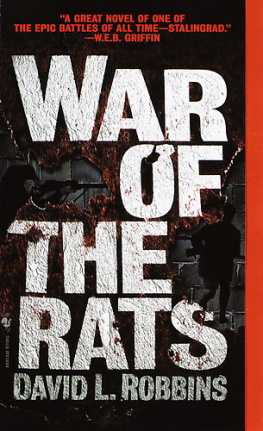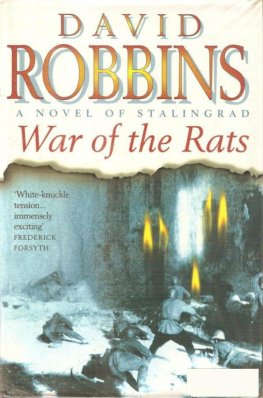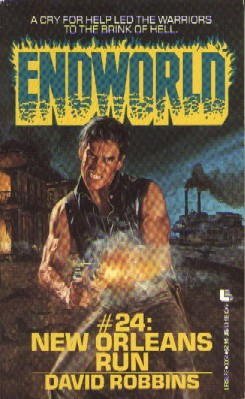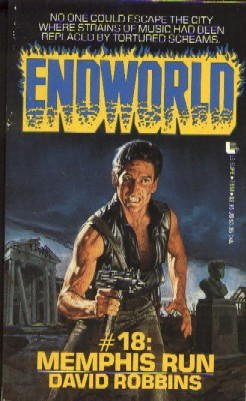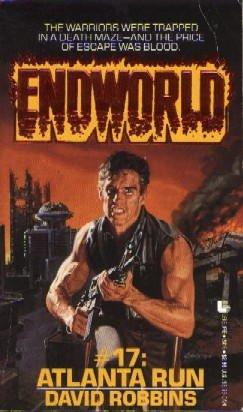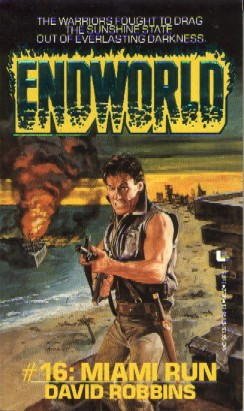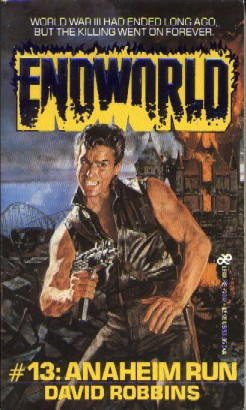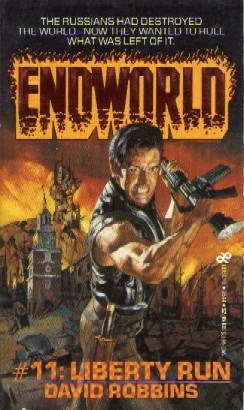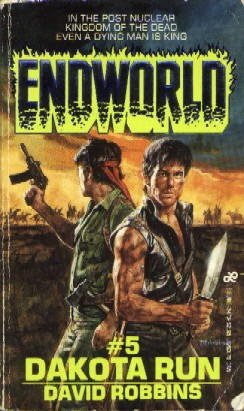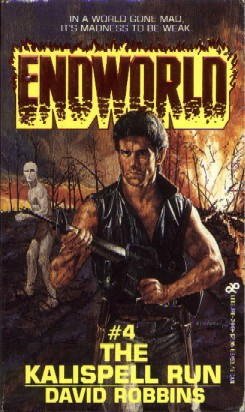David L. Robbins - War of the Rats
Here you can read online David L. Robbins - War of the Rats full text of the book (entire story) in english for free. Download pdf and epub, get meaning, cover and reviews about this ebook. year: 1999, publisher: Random House, genre: Detective and thriller. Description of the work, (preface) as well as reviews are available. Best literature library LitArk.com created for fans of good reading and offers a wide selection of genres:
Romance novel
Science fiction
Adventure
Detective
Science
History
Home and family
Prose
Art
Politics
Computer
Non-fiction
Religion
Business
Children
Humor
Choose a favorite category and find really read worthwhile books. Enjoy immersion in the world of imagination, feel the emotions of the characters or learn something new for yourself, make an fascinating discovery.
- Book:War of the Rats
- Author:
- Publisher:Random House
- Genre:
- Year:1999
- Rating:3 / 5
- Favourites:Add to favourites
- Your mark:
- 60
- 1
- 2
- 3
- 4
- 5
War of the Rats: summary, description and annotation
We offer to read an annotation, description, summary or preface (depends on what the author of the book "War of the Rats" wrote himself). If you haven't found the necessary information about the book — write in the comments, we will try to find it.
War of the Rats — read online for free the complete book (whole text) full work
Below is the text of the book, divided by pages. System saving the place of the last page read, allows you to conveniently read the book "War of the Rats" online for free, without having to search again every time where you left off. Put a bookmark, and you can go to the page where you finished reading at any time.
Font size:
Interval:
Bookmark:
WAR OF THE RATS

Robbins creates an atmosphere so spectral and claustrophobic, and characters of such vivid authenticity as to elevate the material... to the highest levels of pure fiction.... War of the Rats is a must-read, harrowing yarn... a true tale of valor, gallantry, and sacrifice. Steven Pressfield, author of Gates of Fire Strikingly originala novel so agonizingly true that a historian would be proud of it. The authenticity of Robbins characters, the accuracy of his military detail, and the immediacy of his writing all bring the hellish combat of Stalingrad to vivid, gritty life.... Here is a book written with the art and understanding that few war novels can approach. Gary Solis, professor of law at West Point and author of Son Thang: An American War Crime Engrossing... Few suspense thrillers evoke the raw immediacy of War of the Rats . It takes reading only to find it difficult to put down. Stanley Weintraub, author of The Last Great Victory: The End of World War II Based on one small historical drama... a terrifying and personal view from one of mankinds most horrific battles. A thoroughly engrossing story. Rocky Mountain News An engrossing thriller about a deadly, yet curiously romantic, war-within-a-war... Robbins can snatch a time and place out of history and make it come alive. Kirkus Reviews Also by David L. Robbins Souls to Keep


This book is dedicated to
my father, Sam, and my mother, Carol,
both veterans of World War II;
to my brother, Barry,
who served in Viet Nam;
and to those valiant men and women
of every stripe who have borne
honor into battle, who go unnamed
in history only because there
are so many of them .
 I am the way into the doleful city,
I am the way into the doleful city,I am the way into eternal grief,
I am the way to a forsaken race . Justice it was that moved my great Creator;
Divine omnipotence created me,
and highest wisdom joined with primal love. Before me nothing but eternal things
were made and I shall last eternally.
Abandon every hope, all you who enter .
DANTE ALIGHIERI The Divine Comedy: Inferno , Canto III
(the inscription above the gate to hell)
Next to a battle lost, the greatest
misery is a battle gained.
THE DUKE OF WELLINGTON
(after the Battle of Waterloo)
INTRODUCTION

NOT EVEN NAPOLEON HAD STABBED AS DEEPLY into Russia as the German army had by August of 1942.
Adolf Hitlers forces plunged one thousand miles across the vast and hostile plains of Russia to the banks of the Volga River. It was by far the deepest penetration into this Asian land of any foreign legion in history.
The German plan was simple: place Moscow under siege to tie up precious Russian defenses, then race south into the Caucasus region and conquer the strategic oil fields there. Once in control of the Caucasus, Hitler could fashion a peace on his terms and divide Russia in half, enslaving the western portion of the huge nation for his dream of Aryan world expansion and one thousand years of Nazi rule.
Late in July of 1942, Hitler called for a temporary shift in the Schwerpunkt , or main weight, of his Russian invasion, away from the southern oil fields to drive eastward, to neutralize a potential canker on his left flank. The city of Stalingrad, an industrial center responsible for almost half of Russias steel and tractor production, a metropolis of over 500,000 residents, lay on the banks of a crescent in the Volga. Hitler sensed an important, and easy, victory.
The legacy of that decision was written thereafter in more blood and destruction than any other battle in history. The Red forces, under strict instructions from Stalin (for whom the city, formerly Tsaritsyn, was named in 1925 in gratitude for his role in defending it from the White forces during the Russian civil war) to take not a step backward, put up an unexpected and vicious fight.
Stalingrads five-month trial by fire began on August 23, 1942, when the first panzer grenadiers of the German Sixth Army reached the Volga on the citys northern outskirts. The German forces were under General Friedrich Paulus. He and his Russian counterpart, General Vasily Chuikov, commander of the Red Armys Sixty-second Army, presided over a terrible battlefield. The city, subjected to intense firebombings in late August, became a smoking charnel house. Soldiers fought and died in cellars, hallways, alleys, and the massive labyrinths of the wrecked factories smoldering beside the river. For months, the fighting was house to house and hand to hand, and the front lines swayed with each new clash, the rewards of which were measured in meters at a time. German foot soldiers called the fighting Rattenkrieg. War of the Rats.
The Sixth Army kept its strength inside the city at close to a hundred thousand troops, drawing on reserves of over a million men from German, Italian, Hungarian, and Rumanian divisions positioned on the great steppe outside Stalingrad. The Red force inside the city never exceeded sixty thousand soldiers and at times was as low as twenty thousand men desperately surviving until reinforcements could be ferried across the Volga. The two armies ground against each other with an incredible will, killing and maiming soldiers in unprecedented thousands.
By mid-October the Russians had their backs literally to the river. In some places they hunkered no more than a hundred yards from the Volga cliffs. Somehow they held out until finally, on November 19, 1942, the Red Army sprang its November surprise. The Russians executed a sudden and immense flanking action that leaped out from both the north and south to close with terrifying speed behind the Germans and their allies, encircling them with a million and a half vengeful men. Hitler called his surrounded Sixth Army Fortress Stalingrad and told the world these men would stay in place and fight to the death. His encircled troops, freezing, starving, bedeviled by lice, and under constant threat of Russian attack, called their position der Kessel , the Cauldron. Of the quarter of a million soldiers surrounded on the steppe in mid-November, less than a hundred thousand were alive to surrender two and a half months later.
The citys ordeal ended on January 31, 1943, when Paulus, a starved wraith of a man with a facial tic and a dead army, walked out of the battered Univermag department store in the decimated center of the city and surrendered.
The final toll on both armies was an estimated 1,109,000 deaths, the high-water mark of human destruction in the annals of combat. The Red Army reported 750,000 killed, wounded, or missing. German casualties were 400,000 men. The Italians suffered a loss of 130,000 out of their original force of 200,000. The Hungarians saw 120,000 killed, the Rumanians 200,000. Out of a prewar population in Stalingrad numbering more than 500,000, only 1,500 civilians were alive there after the battle.
For both armies, the outcome of Stalingrad was pivotal. Never before had an entire German army disappeared in battle. The Nazi myth of invincibility was broken. The Reds now had a major victory; Russia had withstood Hitlers best punch, and returned to him a death blow. Stalingrad was as far as the Nazis got; the Germans fought a rearguard action for the remainder of the war. Two years later Red forces were celebrating in the streets of Berlin.
Next pageFont size:
Interval:
Bookmark:
Similar books «War of the Rats»
Look at similar books to War of the Rats. We have selected literature similar in name and meaning in the hope of providing readers with more options to find new, interesting, not yet read works.
Discussion, reviews of the book War of the Rats and just readers' own opinions. Leave your comments, write what you think about the work, its meaning or the main characters. Specify what exactly you liked and what you didn't like, and why you think so.

